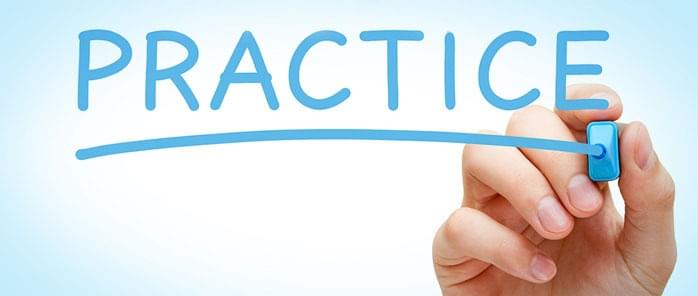
Improve Your Cantonese by Doing this ONE Thing
Written by Sheldon Ho on Sept. 30th 2021
Cantonese is a dialect of Chinese spoken in the Guangdong province of China. It is also spoken in Hong Kong, Macau, and by Overseas Chinese communities around the world. If you’re reading this article, you’re likely a part of the Cantonese Diaspora and want to get better at speaking Cantonese.
You likely speak it with your family at home, and “sik teng m sik gong”.
You can understand simple Cantonese, and know all the basics - but you’ve probably never studied Cantonese grammar, and don’t really have much of an understand of how to read or write Chinese Characters.
If you are hoping to improve your Cantonese fluency, here are five tips to help you on your way!
(Make SURE you read the LAST ONE)
1) Find a Language Partner
A great way to practice your Cantonese is to find someone who is also learning, or a native speaker who is willing to help you practice. You can meet people through online language exchange platforms, or by joining a local Chinese language meetup group.

2) Use Online Resources
If you're looking for ways to improve your Cantonese, there are plenty of online resources that can help. From online dictionaries and phrasebooks to Cantonese-specific forums and social media groups, there's no shortage of material to help you learn the language.
One of the best places to start when learning any new language is with a good dictionary.
For Cantonese, we recommend the CantoDict website, which offers both a traditional and simplified Chinese characters dictionary. The CantoDict website also has a phrasebook with essential phrases for travel, dining, shopping, and more. If you're using a mobile device, you can also check out the Pleco Chinese Dictionary app, which offers an offline Cantonese dictionary with stroke order animations.
Another great way to learn Cantonese is by interacting with native speakers online. There are several Cantonese-specific forums, such as HKGolden and ShareTVB, where you can find discussions on everything from current events to pop culture. You can also join one of the many Cantonese social media groups on Facebook or WeChat. These groups are a great way to practice your Cantonese skills and make friends in the process.
Keeping up with current events is a great way to improve your Cantonese reading and listening skills. There are several news websites that cater specifically to Cantonese speakers, such as HKGNews and HK onion. You can also listen to Cantonese news podcasts like RTHK's News Roundup or Commercial Radio Hong Kong's News30 podcast.
There are plenty of great online resources available for those looking to improve their Cantonese skills. By making use of dictionaries, phrasebooks, forums, social media groups, news websites, and podcasts, you can quickly start making progress in your ability to read, write, speak, and understand Cantonese. And who knows? With enough practice, maybe one day you'll be able to converse fluently in the language!

3) Watch Cantonese TV and films.
If you're trying to improve your Cantonese, watching TV and films is a great way to immerse yourself in the language. Not only will you get to hear native Cantonese speakers using the language in everyday conversation, but you'll also pick up on common phrases and slang terms that you might not otherwise learn from a textbook.
By hearing the language spoken by native speakers in a variety of different contexts, you'll start to get a feel for how the language sounds and flows. This will help you understand what people are saying when you overhear conversations in Cantonese, or when you're trying to follow along with a TV show or movie.
Another benefit of watching Cantonese TV and films is that you'll learn new words and phrases that you might not otherwise come across in a textbook or classroom setting. By seeing these words used in context, you'll have a better understanding of how they're used and what they mean. Plus, if you come across a word or phrase that you don't know, you can always pause the film or TV show and look it up—something that's not always possible when you're trying to listen to a conversation in real time.
In addition to learning about the language itself, watching Cantonese TV and films is also a great way to gain an understanding of the culture. You'll get to see how people interact with one another, what kinds of things are important to them, and what their values are. This can be especially helpful if you're planning on travelling to Hong Kong or another Cantonese-speaking region, as it will give you some insight into what life is like there.

5) Practice speaking Cantonese every day.
The best way to learn anything is by practicing it regularly. This is especially true for language learning. When you practice speaking Cantonese every day, you will see a significant improvement in your skills. This is because speaking the language on a daily basis will help you become more comfortable with using it and will also help you to remember what you have learned.
In addition, when you practice speaking Cantonese every day, you will be exposed to different aspects of the language that you may not have otherwise encountered. For example, if you only ever speak Cantonese with friends or family members, then you may not be exposed to topics such as business or politics. However, if you make an effort to speak Cantonese every day, then you will quickly become familiar with a wider range of vocabulary and phrases.
Now that we know why speaking Cantonese every day is important, let’s take a look at how to do it. No matter how you choose to practice speaking Cantonese every day, the important thing is that you make an effort to do it regularly. The more exposure you have to the language, the better your skills will become. So what are you waiting for? Start practicing today!

6. Read Cantonese news articles and books.
One of the best things you can do to improve your language skills is to read Cantonese news articles and books. While it may be challenging at first, reading authentic Cantonese materials will help you better understand grammar, vocabulary, and sentence structure. Not to mention, it's an excellent way to stay up-to-date on current events in Cantonese-speaking countries!
Some tips for reading Cantonese news articles and books:
1. Start with shorter pieces. Newspaper articles are a great place to start because they tend to be shorter and easier to understand than full-length books. Once you feel comfortable reading shorter pieces, you can gradually move on to longer ones.
2. Look up words you don't know. Don't be afraid to look up words you don't know; that's what dictionaries are for! Trying to guess the meaning of a word based on context can be frustrating, so save yourself some time and effort by looking it up right away.
3. Read aloud. Reading aloud is an effective way to improve your pronunciation and fluency. It also helps you catch errors that you might not notice when reading silently.
4. Practice, practice, practice! The more you read, the better your Cantonese will become. So find a news source that you enjoy reading and make a habit of reading it on a regular basis. Soon enough, you'll be surprised at how much progress you've made!
So how do I improve in Cantonese in that CASE?
The best part about trying to learn and improve your Cantonese, is that you can learn a whole new language while you’re doing it!
Yes, the best way to improve your Cantonese is by learning Mandarin and Cantonese simultaneously. Why? Because a lot of formal Chinese documentation, Cantonese songs, as well as the News will employ Mandarin Grammar and sentence structure, and learning Mandarin will help you to understand it.
Take for example this popular Cantonese Song 愛與誠:
You can think of it kind of like singing a song with French Lyrics, but reading all the lyrics in English. Both languages use the latin alphabet, in the same way both Cantonese and Mandarin use the Chinese alphabet.
In other words, without any understanding of Mandarin structure, grammar, and vocabulary, this song would not be understood by you.
To understand how this works, we need to take a deeper dive into the differences between Cantonese and Mandarin, and understand how learning Mandarin helps with Cantonese comprehension.
Cantonese VS Mandarin
How Does Learning Mandarin Help you Learn Cantonese?
To understand how learning Mandarin will help your Cantonese, it’s important to understand the relationship between the Chinese language as a whole, as well as Cantonese vs Mandarin.
Let’s first note that spoken Cantonese, and written Chinese are completely different things. For instance, let’s take a look at this sentence.

If Formal Cantonese doesn’t make sense to you, it’s because that sentence is read out in Cantonese, but it employs Mandarin sentence structure and vocabulary. When listening to formal Cantonese, you’ll frequently hear Mandarin sentence structure and vocabulary, but read in Cantonese.
The spoken Cantonese example is something you will almost never encounter outside of everyday conversation.
In other words, by learning Mandarin, we also improve our Cantonese! This is because it makes us able to understand formal Chinese sentence structure that is used in formal discussions, Cantonese music, as well as formal documentation.
So How do I Learn Mandarin?
Luckily, because you have a background in Cantonese, learning Mandarin becomes exponentially easier!
In fact, the time to become conversationally fluent can be shortened to 6 weeks. This means you can learn CONVERSATIONAL Mandarin in just 6 weeks. Even if you don’t know how to read or write Chinese, and speak only a liiiiitle bit of Cantonese, you still have a big advantage when it comes to learning Mandarin.
Check out our other article: How Hard is it to Learn Mandarin if you Speak Cantonese to learn more!
What are the benefits of Learning Mandarin for Cantonese Speakers? Find out!
